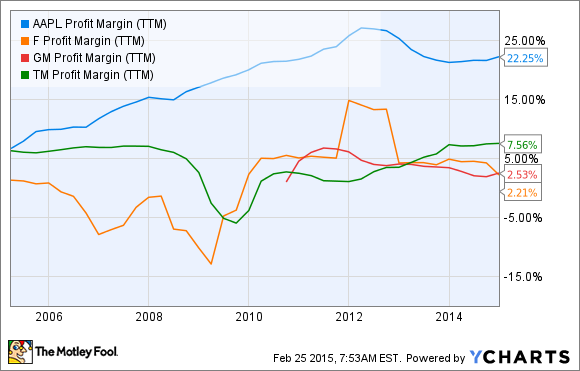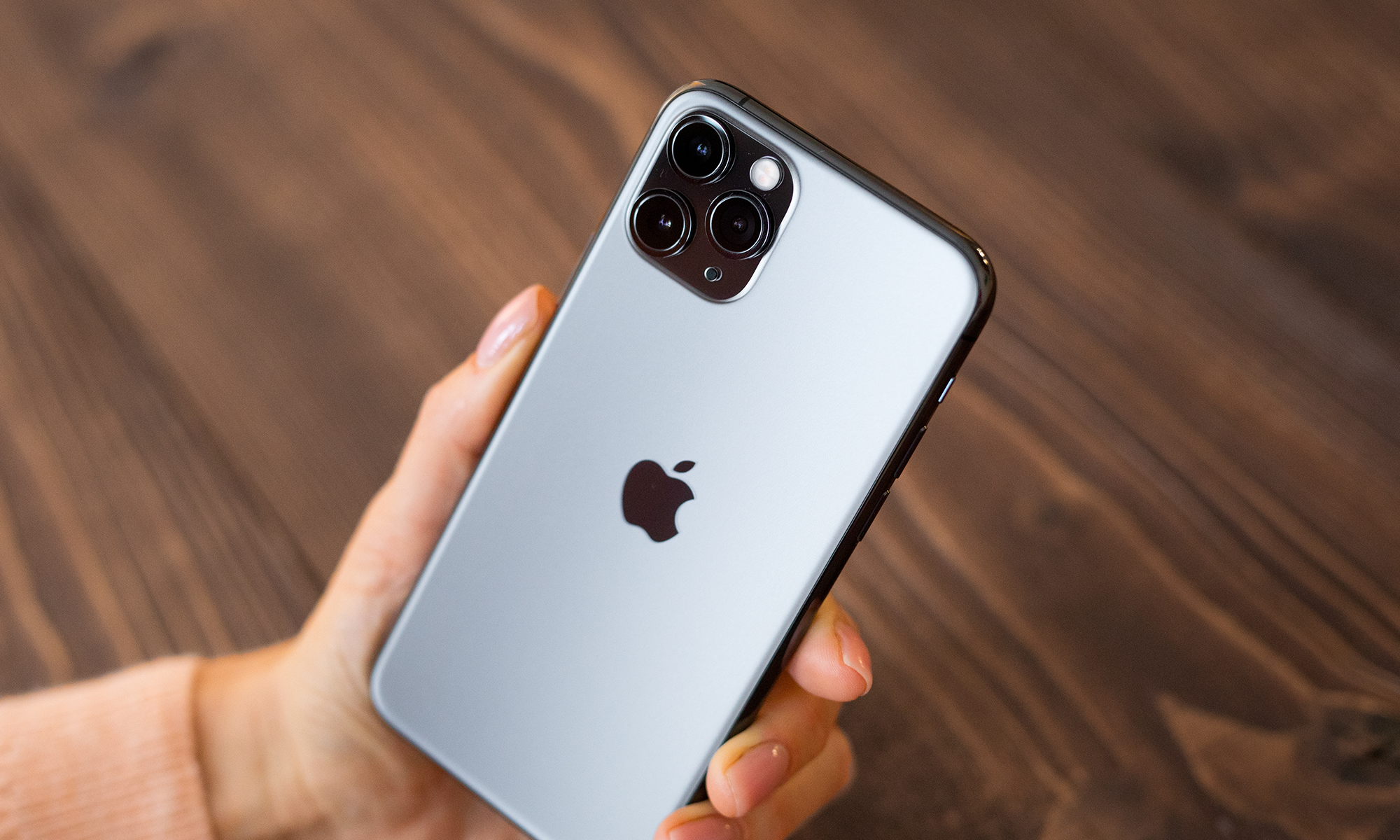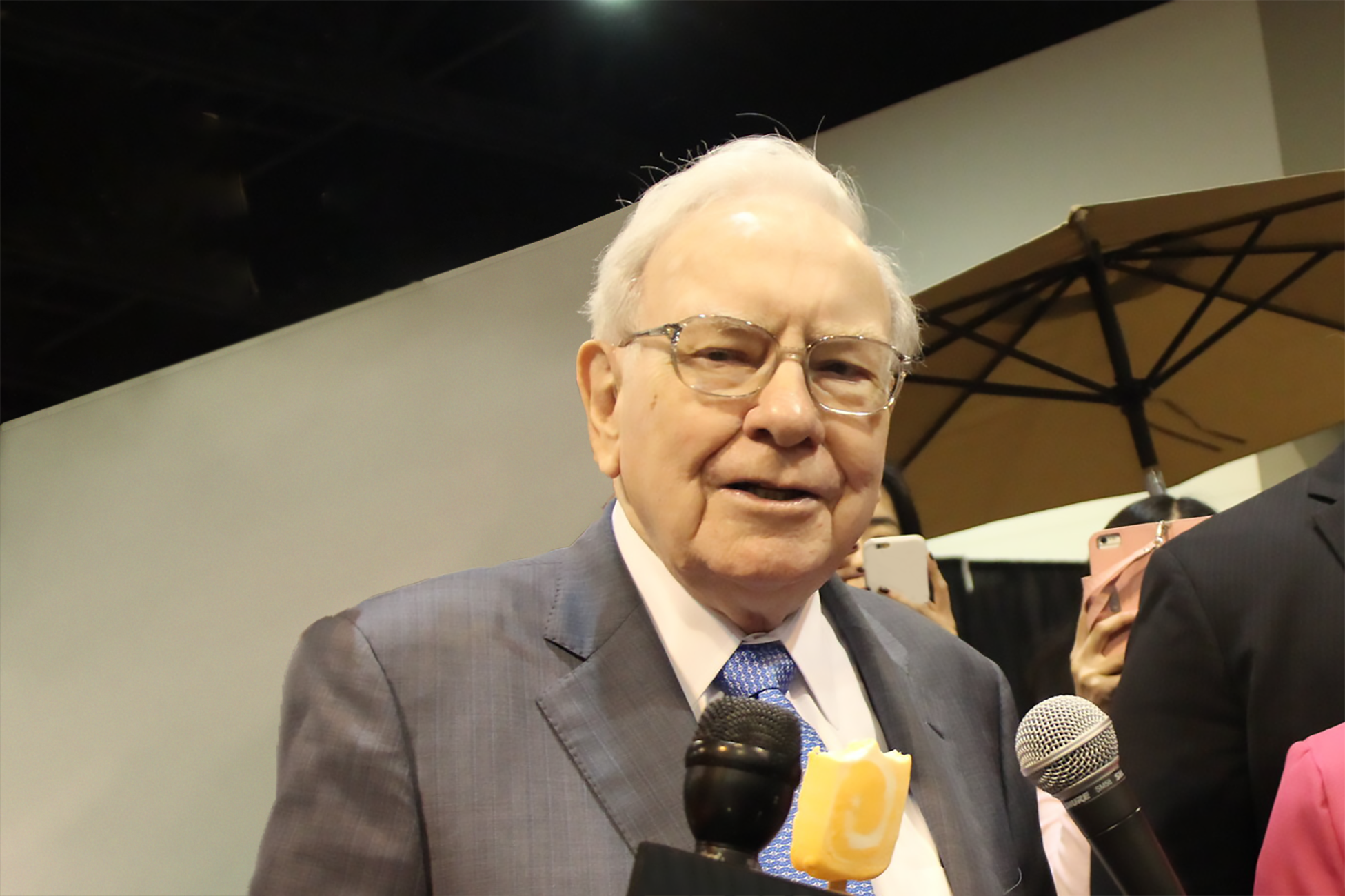
Could Apple Stores turn into car showrooms? Not likely. Source: Apple.
The internet has been abuzz with rumors that the Mac maker will dip its toes into the auto market, and while it's easy to get caught up in the speculation, there's plenty of reasons to think it won't happen.
It's not that Apple (AAPL +1.84%) can't make a car if it really wanted to. People have traveled into space and landed on the moon -- so of course a company as rich as Apple can actually build an electric car, an autonomous one, or heck, even an amphibious one if it really wanted to.
But having the resources to physically produce a product is only part of the equation. That's the fun, gee-whiz part that gets everyone excited. But the rest of the equation -- the boring part -- is if it's actually feasible for Apple to make a vehicle intended to sell millions of units, build it to last for a couple of decades, set up a way to sell it and service it, and overcome the burdensome regulations that surround the industry.
That's where everything starts to break down, and that's why there are at least four reasons why Apple's not coming out with its own car. Let's take a look:

By 2020, just 1.9% of vehicles will be battery powered. Source: J.D. Power & Associates via MIT.
1. Electric car consumers are still on the fringe
Let's assume Apple wants to make an electric car, as opposed to one with an internal combustion engine. After all, this is Apple. But vehicle batteries are still very expensive and charging stations -- despite Tesla's (TSLA +0.02%) valiant efforts -- are still sparse. Of course batteries are always getting better and cheaper, and Tesla building its own Gigafactory will eventually drive those costs down more (assuming Apple could hypothetically buy batteries from Tesla in the future).
But the demand for electric vehicles doesn't even come close to demand for traditionally powered cars. The Economist pointed out earlier this month that the Nissan Leaf is the best-selling electric car in the world -- yet it only moved 40,000 units last year.
An MIT Technology Review report said that, "The share of battery-powered vehicles will grow but will remain small through 2020, largely because of high costs." In this case, small means just 1.9% of the market.
Apple won't spend billions of dollars to sell tens of thousands of electric cars. Even if it gets lucky, a hundred thousand cars still wouldn't be worth the cost. Unlike Apple's gadgets, people won't stand in line to trade in their cars for an Apple one -- they simply won't be able to afford to.
2. It takes more than a disruptive attitude to up-end autos
An Apple car also faces the hidden problem of regulation. The automotive industry is clouded with (needed) government regulation, which protects consumers, but slows down innovation. These aren't pocket gadgets after all, human lives are actually at stake.
This isn't an industry companies just jump into and hit the ground running. And no, Tesla didn't just jump into it. Tesla is disruptive to be sure, and the company builds amazing electric vehicles that continually receive top-notch ratings. But let's not forget it took five years from Tesla's founding to releasing the Roadster -- its first vehicle -- and it sold a whopping 2,400 of them.
That's not to put down Tesla, it's just an example of the pace it takes to get a new car company up and running. Apple may be disruptive, but it's not a scrappy, young company burning lots of cash so it can bring EVs to the masses. Also, it's important to remember Tesla's still not profitable (which won't happen until 2020 according toe CEO Elon Musk). Meanwhile Apple's gotten very used to big profits.
3. Get ready for lower margins
Which leads us to the next problem: profit margins. In an interview with Bloomberg earlier this month former General Motors (GM +9.05%) CEO, Dan Akerson, said of Apple entering the automotive market, "I would be highly suspect of the long-term prospect of getting into a low-margin, heavy-manufacturing" business.
If we take a look at the profit margins of Apple compared to GM, Ford and Toyota we see exactly what Akerson's talking about:

Source: YCharts.
Toyota's the world's largest automaker (by sales) and it's profit margin is less than 8% -- compared with Apple's 22%.
You can bet Apple wouldn't stand for the low margins Ford and GM have, or even Toyota's. Low margins aren't in Apple's wheelhouse and if it wants to overcome that hurdle then it'll be selling cars at exorbitant prices to get them, and moving just a handful of cars in the process.
Service, selling, and manufacturing nightmares
Each one of these issues is a major headache, but let's lump them all together as the final nail in the coffin for an Apple car.

Apple would need a place to service the vehicles too. Source: Fool Editorial.
Apple generally has great customer service, but having an Apple Genius tapping around on your phone isn't like having a car fixed. We're talking about setting up service stations around the entire United States (presumably the first place Apple would start selling its vehicles), or at the least partnering with other established carmakers to utilize their service mechanics, with special training from Apple of course. That's quite a network to setup.
And then there's selling the vehicle. Tesla's had a rough go at it, suing states to allow the company to sell directly to customers. Ultimately, this will be cleared up, and the country will come to its senses and allow Tesla to sell products to willing customers (this is America, after all). Apple may not have to fight the same battle if all this gets fixed before the rumored Apple car comes out, but we're still years away from direct sales being a non-issue.
Finally, we come to manufacturing. Vehicles have thousands of parts in them, most of which Apple knows nothing about right now. Making consumer devices isn't easy, but it's certainly not the same as making a reliable vehicle that safely moves humans from point A to point B. Hiring a few automotive executives doesn't fix this either (Apple has already hired the former Mercedes-Benz head of R&D). This requires an entire company within a company to get all the needed parts suppliers on board for a new vehicle, tooling and retooling designs, and getting manufacturers to put it all together.
Apple will certainly change the auto industry
As with any new product, timing is everything. Apple is famously adept at getting the timing of its devices right, which makes it hard to bet against the company if it is indeed working on a car. But being good at timing, great at entering new markets, and superb at making devices doesn't mean Apple's ready to sell a car to the masses.
Apple will certainly change the automotive industry with its technology -- and it already has -- but an Apple-branded car on showroom floors won't be how it does it.











